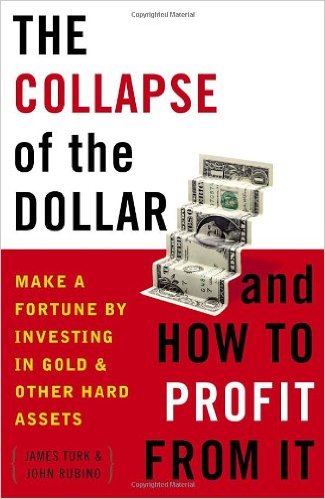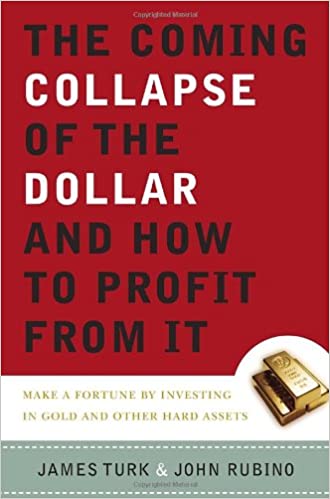May 5, 2012 – Back in 2009 when the Greek crisis was just starting to make headlines, I wrote an article concluding that sovereign debt defaults would bring the end of socialism. My premise was straightforward and based on financial reality. I neatly summarized this inevitable outcome with one of my favorite quotes from Margaret Thatcher: “The problem with socialism is that you eventually run out of other people’s money.”
I then went on to say: “…in the months immediately ahead [socialism] will be put to a rigorous test. The test will be visible to everyone as countries around the globe run out of money and confront overwhelming debts that cannot be repaid as well as other wide-ranging financial promises that can no longer be met. In short, the ideological bankruptcy of socialism will be laid bare by government insolvency.”
Here we are three years later with widespread government insolvency. Governments long ago ran out of money, so what did they do? Rather than face the reality that their financial resources are limited and their spendthrift policies and unrealistic promises were placing them on the road to financial ruin, they instead followed the line of least resistance by borrowing ever-increasing amounts of money in a foolish attempt to keep their socialist policies going.
Governments did buy some time by borrowing tons of money. Predictably, they now find themselves in a situation where not only have they run out of money, they have also run out of borrowing capacity. They have reached the “fork in the road” I wrote about back in 2009. “One way leads to more socialism, more demagogues and eventually a dictator who promises that he will make socialism ‘work’. The other leads to the capitalist society that America used to be, with free-markets, limited government and the unconditional rule of law.”
Sadly, it is becoming increasingly clear on which road many governments are headed. They are moving from government to ‘robberment’, a catchy term I learned from someone on a recent trip to Switzerland who values personal liberty and recognizes the ideological and financial bankruptcy of state socialism. His term self-evidently explains how governments use theft to buy more time to keep their socialist game going.
Argentina is perhaps leading the way by its nationalization of Repsol’s assets in that country. That theft of private property was quickly followed by Bolivia’s armed forces taking control of the facilities of Spanish power-grid company Red Eléctrica Corp.
South America has a long history of seizing assets, but countries there are not unique. After all, one of history’s most egregious assaults on private property was Franklin’s Roosevelt’s dictate to take control of privately owned gold in the US. It turned completely upside down the most basic principle of American law, that private property and the right to private contract were sacrosanct and beyond state interference.
More recently, the Irish government raided private pensions. Argentina did the same thing back in 2008, which leads to an important point. Typically, one theft leads to another, so expect more plunder from the socialists in Argentina, and indeed, by socialist governments everywhere. Tragically, where is the outrage to this ‘robberment’?
It won’t come from political leaders. They all recognize that they too want the option to resort to theft. It may not be as extreme as that which occurred in Argentina or Ireland, but it will be theft nonetheless to keep the socialist game going, and thereby protect their perquisites and power. The current issue of Barron’s, for example, makes this point clearly in an article entitled “Rotten to the Core? Uncle Sam and California take big bites out of Apple”.
The so-called intellectual ‘elite’ will always come up with ways for the state to steal private property, while offering grandiose explanations in an attempt to justify their insidious onslaughts on the backbone of the rule of law – property rights. For example, an op-ed in the Financial Times on April 30th explains how the Spanish government might get more money to address its over-indebtedness: “An alternative emergency approach would be to mandate, on a temporary basis, bond purchases by Spanish households and businesses.” I suppose “mandate” was purposefully chosen because it sounds better than theft. And of course, it is only “temporary” theft, as are all incursions by the state that erode the rule of law. That this article was written by a Harvard professor and former US presidential advisor makes clear that the academic and political elite in the US is as intellectually bankrupt as any other socialist country.
The decline in government, and more to the point, the absence of principle and honor by those political leaders who resort to theft is indeed a sad state of affairs, but it is nothing new. Here is what Frederick Bastiat had to say about it over 150 years ago.
“When plunder becomes a way of life for a group of men living together in a society, they create for themselves in the course of time a legal system that authorizes it and a moral code that glorifies it.”
Not too many decades ago Ayn Rand made a similar observation.
“When you see that trading is done, not by consent, but by compulsion — when you see that in order to produce, you need to obtain permission from men who produce nothing — when you see that money is flowing to those who deal, not in goods, but in favors — when you see that men get richer by graft and by pull than by work, and your laws don’t protect you against them, but protect them against you — when you see corruption being rewarded and honesty becoming a self-sacrifice — you may know that your society is doomed.”
So what do we as individuals do to protect our families and ourselves? First, we have to come to grips with the breadth and depth of widespread government insolvency and that ‘robberment’ will become increasingly prevalent. Then, we have to recognize that there is a difference between invisible wealth and the wealth that is an easy target for government confiscation. That is a topic beyond the scope of this article and outside of my area of knowledge and expertise. But one common sense approach to avoid confiscation is geographic diversification of one’s assets by putting them in different political jurisdictions in the hope that some governments won’t become robberments by descending into tyranny and theft.








 My objective is to share with you my views on gold, which in recent decades has become one of the world’s most misunderstood asset classes. This low level of knowledge about gold creates a wonderful opportunity and competitive edge to everyone who truly understands gold and money.
My objective is to share with you my views on gold, which in recent decades has become one of the world’s most misunderstood asset classes. This low level of knowledge about gold creates a wonderful opportunity and competitive edge to everyone who truly understands gold and money.
